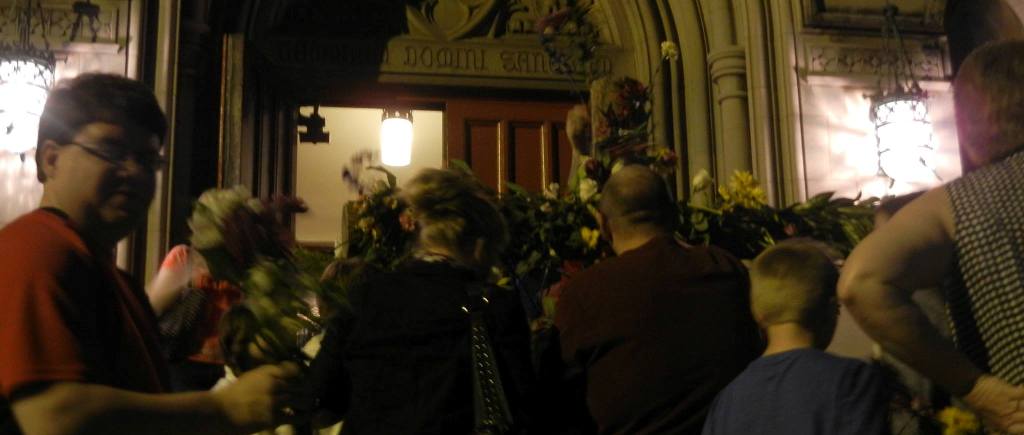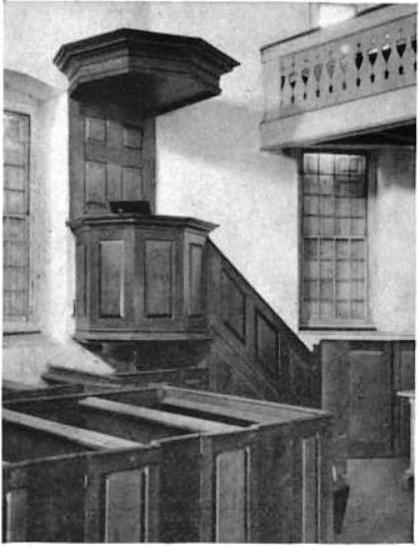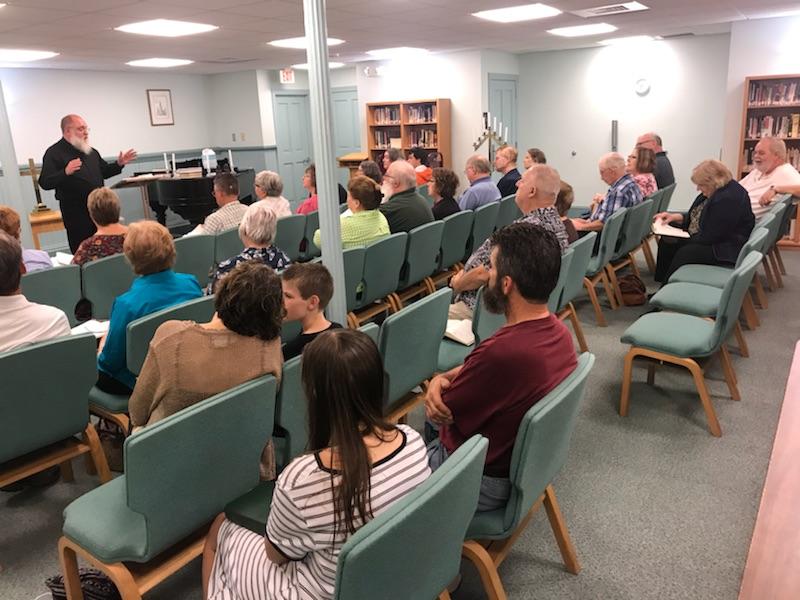
West Virginia - Western Maryland Synod
|
Page
Contents
|
Clergy compensation guidelines for 2026 have been posted
on the Clergy Compensation page.
New Supply Preaching Compensation Schedule Effective 1 October 2025
The first increase to regular supply preaching and
presiding in ten years was adopted by Synod Council at its
6 September 2025 meeting. For more information, visit our
Supply
Preaching & Presiding page.
Mission Support
All things mission support are posted on our Mission
Support page, including
- mission support request for 2026
- remittance forms,
- commitment (pledge) forms, and
- a little synodical mission support history
Church Property Resource Hub
The Church Property Resource Hub, a project of the ELCA,
is expanding rapidly in the resources that are being
published in response to requests from synod and local
church leaders for support navigating the challenges and
opportunities that buildings and land represent for both
congregational vitality and the wider mission of the
Church. You can check out what is already online at elca.org/CPRH.
You can sign up for the Church Property Resource Hub
Newsletter to get the latest news and resources (click here).
With the newsletter you will be alerted to webinars and
other resources as they become available. The upcoming
webinars include
- Jan. 13 – Insurance Board
- February (TBD) – Development 101 for Synods
- March (TBD) – Church Property Resource Hub: ELCA Town Hall
Register for a webinar at the Church Property
Resource Page.
Church & Taxes
Portico provides a guide to help congregations understand their federal tax requirements. You can download, at no cost, Federal Reporting Requirements for Churches from either myPortico or EmployerLink.
Mutual Ministry Committee and
the Driesen Manual
At the direction of the Synod Assembly 2021, the Synod
Mutual Ministry Committee is promulgating the Driesen
Manual as a resource for mutual ministry committee work.
Learn more here.
 Supply
Preachers
Supply
Preachers
Do you need coverage for a service? Click here for the Supply
Preacher page.Having trouble finding supply preachers? Apply To Be a Reader!
Having trouble finding supply preachers? In some parts of our territory, it's not easy. There simply aren't folks within a reasonable drive or the few that are are already engaged. To address this problem (as well as reform our longstanding Bishop Lay Worship Leaders Program, Synod Council has authorized the new Synodical Lay Worship Leaders Program, and the first license that is now being rolled out is the "reader" license.Readers do not prepare their own sermons. Instead, they select a sermon from a reputable source in consultation with an assigned supervisor. They also lead worship, using one of the approved liturgies (i.e., ante-communion, service of the Word, matins, or vespers). While it may be difficult to find a pastor or authorized lay preacher in your vicinity, it shouldn't be too hard to identify a trusted lay member (perhaps more than one) in your congregation and suggest licensure. To learn more about the program, visit the Synodical Lay Worship Leaders page.
Pastoral Transition & Vacancy Page
We has gathered together on one page items related to pastoral transitions (coming and going) and pastoral vacancy, but the material related to call process has grown, necessitating two pages. You can still start your exploration at the "transitions" page: check it out.
Polity for Congregations
We've uploaded a new constellation of pages related to
polity. You will find there
- Procedure in Small Boards
- Education & Training for Congregational Leaders
- Polity for Councils: A Crash Course for Congregational Councilors
- The Wild and Wonderful World of Procedure
- Parliamentary Authority: Robert's Rules of Order
- Congregation Meeting in Time of Pandemic
- Email Voting by Congregation Council
- Updating your Congregation's Constitution
- WV Congregations: Filing Your Trustees with the County
- Selling Church Property
- and more
COVID-19 Page
COVID-19 poses special challenges for congregations and their leadership. A special page has been set up on the synod web site for COVID-19 related information. Please visit WV-WMD.org/COVID-19 to access the latest material.Workshops & Presentations
The WV-WMD Synod offers workshops and presentations for
congregations on a variety of topics. The following are
currently available, but more will be added as time goes
on. If there is something you would like to see that is
not listed, contact Bishop Riegel. To make arrangements
for a presentation or workshop, email Bishop Riegel
(Bishop@WV-WMD.org).
 Worship
Worship- Praying Compline
- Praying Matins
- Praying Vespers
- Tips for Singing Psalms
- Polity & Governance
- Intro to Roberts Rules of Order
- Updating Constitutions & Bylaws
- Theology, Bible, Ethics, and History
- Sanctification in a Lutheran Key
- The Rhetoric of First Corinthians
- A Theological Argument for the Political Animal
- German-speaking Lutherans in the Great War's America
- Making End of Life Decisions
- The History of the History of the Reformation
- The Geo-Politics of the Reformation
Events that have been scheduled can be found on the Synod's Education page.
A Seed Planted Mission Fund
Synod Assembly 1996 established “A Seed Planted” Mission
Fund to stimulate innovative outreach by or from
congregations. Awarded grants went for a range of
activities from a coffee house Bible study to printed
promotional material to efforts with unaffiliated
populations. To download information on the fund and
guidelines on application for a grant, click here.
Couldn't find what you were looking for?
Try refreshing your page. Most browsers cache pages for
faster loading. Unfortunately, when a page updates,
sometimes, your browser is pulling a saved copy of the
page from your cache. If you came here because you saw an
announcement about something being added to the page but
can't find it, it could be browser caching. By refreshing
your page, you can force your browser to download the most
recent version from the server---well, most of the time.